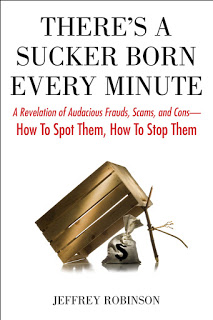Spotting the difference between the real thing and a phony is easy when you know what to look for. If you answer yes to even one of the following twelve questions, the email is a con. Do not respond. Delete it.
1. Has the email been addressed to “undisclosed recipients”?
2. Is it from a high official in a foreign government, agency, or business, when you don’t happen to know any high officials in foreign governments, agencies, or businesses?
3. Does the salutation read something like Dear Beloved, Dear Valued Friend, Valued Customer, or anything even remotely like it?
4. Is it from a company you have never been done business with, such as a bank where you don’t have an account?
5. Is it from a company you have done business with, such as a bank, but is asking you to verify your account or provide personal information?
6. Are there spelling and grammar mistakes? Is the message sometimes difficult to grasp? Is it supposed to be official and yet doesn’t sound official?
7. Is this about a business deal where the sender is looking for a partner or someone to help him in a highly lucrative venture? Are there assurances that it is risk free and absolutely on the level? Are the sums involved so much that you think this can’t be true?
8. Does he promise to give you all the details later but refuses to go into any details until you respond with personal details.
9. Is there any mention of Nigeria or another country in West Africa?
10. Does the sender refer to where you live as “your country”?
11. Does the tale he’s spinning seem odd and convoluted?
12. Is anyone asking you to send money on the promise that if you do, you will receive back a much larger sum?


No comments:
Post a Comment